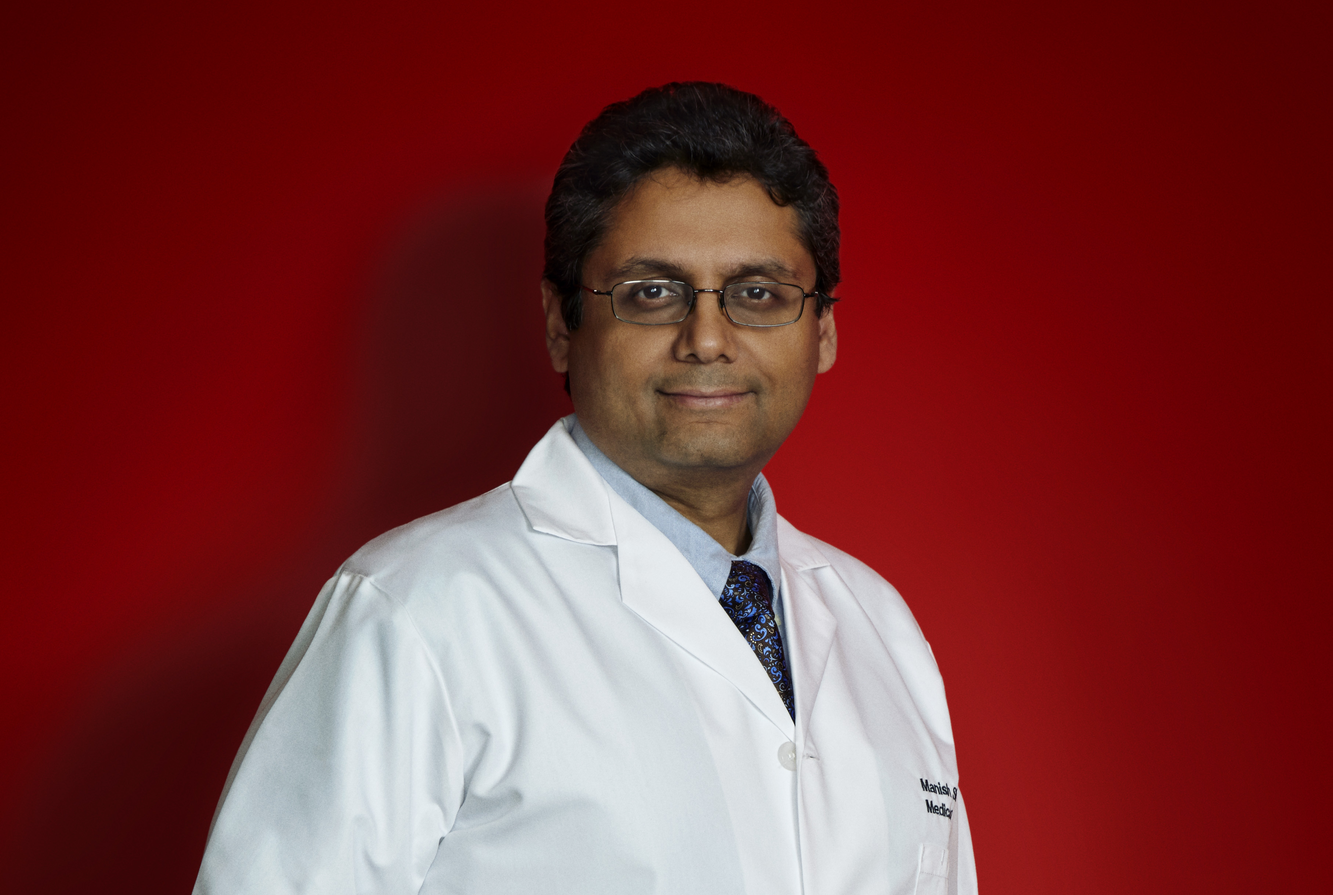Physicians and researchers from Weill Cornell Medical College and nearby institutions marked the end of the trading day at the New York Stock Exchange Dec. 19 in a show of solidarity in the fight against stomach and esophageal cancer, deadly diseases of the upper gastrointestinal tract in dire need of medical progress.
Dr. Manish Shah, assistant professor of medicine and director of gastrointestinal oncology at NewYork-Presbyterian Hospital/Weill Cornell Medical Center, rang the NYSE closing bell at 4 p.m. that Monday afternoon, accompanied by colleagues Dr. Andrew Dannenberg, the Henry R. Erle, M.D.–Roberts Family Professor of Medicine and director of the Cancer Center at NYP/Weill Cornell, and Dr. Nasser Altorki, the David B. Skinner Professor of Thoracic Surgery and chief of thoracic surgery at NYP/Weill Cornell.
They were joined by Dr. Daniel Coit, professor of surgery at Memorial Sloan-Kettering Cancer Center; Dr. Yelena Jangigian, medical oncologist at MSKCC; Dr. David P. Kelsen, medical oncologist at MSKCC; Dr. Martin S. Karpeh Jr., chairman of the department of surgery and director of surgical oncology at Beth Israel Medical Center; Lynn DeGregorio, founder and president of the DeGregorio Family Foundation; Dr. Richard DeGregorio, treasurer of the foundation; and Patrick Armstrong, board member of the foundation and Executive Floor Governor on the NYSE trading floor.
Cancers of the upper gastrointestinal tract are uniformly fatal if diagnosed after they have metastasized. Stomach cancer is the second most common cause of cancer-related mortality worldwide, claiming the lives of nearly 1 million people in 2009, while esophageal cancer is among the deadliest with less than 10 percent of patients diagnosed surviving more than five years.
The DeGregorio Family Foundation — which is dedicated to increasing awareness and stimulating collaborative research for these diseases — assembled the team of distinguished physicians from collaborating institutions to call attention to the urgent need for additional funding to develop better early detection tests and improve treatment options for patients with gastric and esophageal malignancies. The foundation distributes grants to physicians, researchers and institutions to fund this research, working to turn the grim facts about these malignancies into fiction in the years to come.
"We have not seen much progress in the care of patients with esophageal or gastric cancers over the past several decades," said Dr. Shah, who also serves as chair of the foundation’s scientific advisory board. "By working together, we hope to turn the tide against these devastating diseases."

